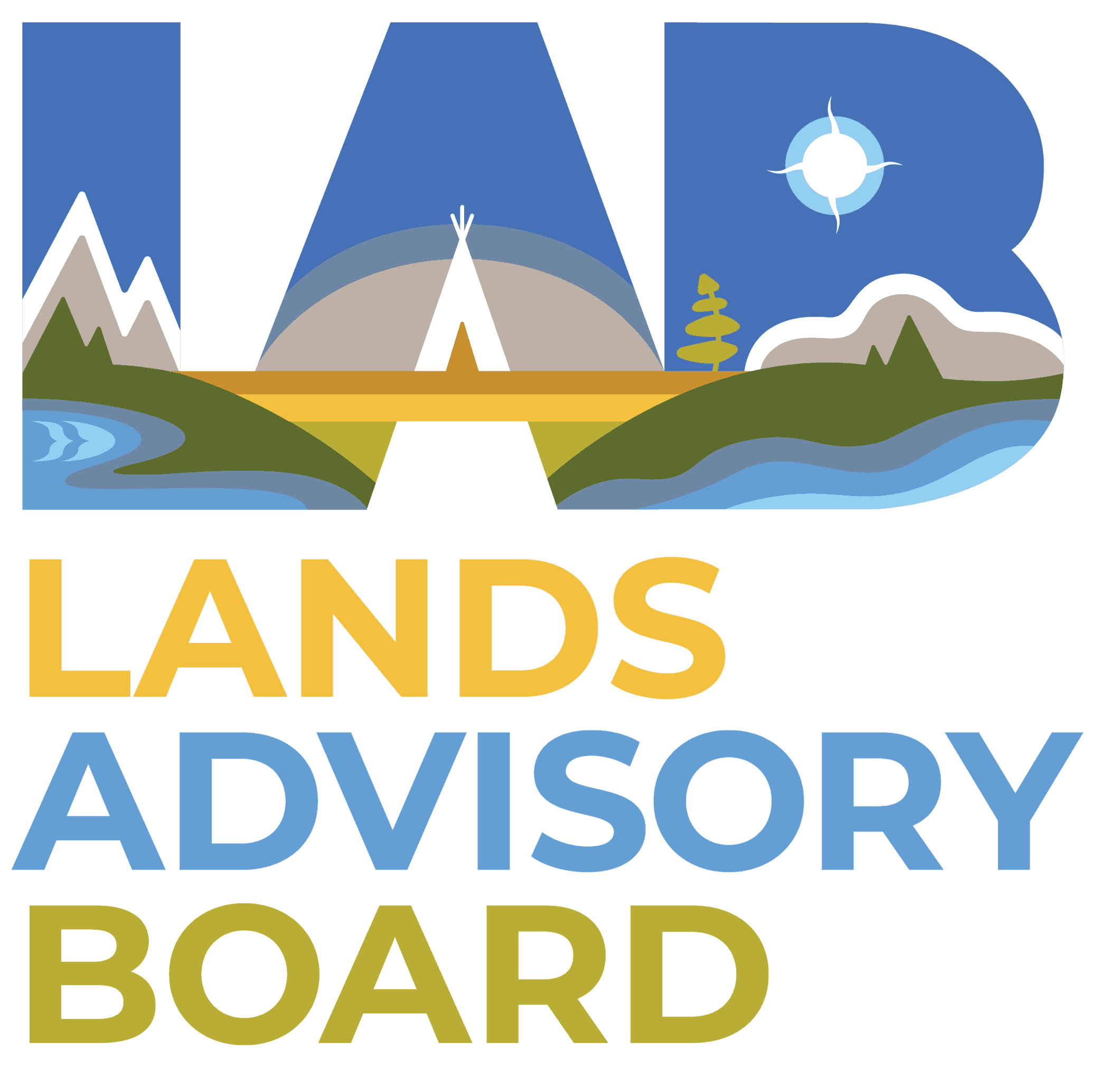
The Lands Advisory Board
Who We Are and What We Do
Through the historic government-to-government Framework Agreement on First Nation Land Management, the First Nations Lands Advisory Board (LAB) is dedicated to supporting First Nations communities in their efforts to re-establish control over their lands, natural resources and environment.
The Framework Agreement is a First Nations-driven land governance option that provides the opportunity to resume control over their reserve lands, natural resources and environment. Since the Framework Agreement’s signing in 1996, an ever-growing number of First Nations communities across Canada have resumed their inherent authority over their reserve lands, natural resources and environment by replacing the 44 lands-related sections of the Indian Act with a community-developed and approved land code.
LAB Mission Statement
“First Nations working together to resume jurisdiction over their Lands, Environment and Resources.”
First Nation Established and Controlled
The LAB is comprised of an elected Chairman and regionally elected Directors, determined by the Councils of the signatory First Nations who have formally established their community land codes.
Among its roles, the LAB:
- Provides strategic direction to the First Nations Land Management Resource Centre which was established to provide technical and professional support to First Nation signatories as they develop and implement their own land codes,
- Proposes legislative changes to the Framework Agreement and federal legislation as directed by the signatory Councils, and
- Advocates for and negotiates funding with the Government of Canada on behalf of the First Nations signatory communities.
While the LAB focuses on several issues each year, current high-level priorities include reforms to Canada’s Additions to Reserve (ATR) Policy, addressing the crisis surrounding the lack of enforcement of First Nation laws, and creating the First Nation Land Governance Registry.
The LAB’s efforts to create solutions for these issues strengthen signatory First Nation governance capacity and build on the Framework Agreement’s more than a quarter-century of success in efficiently and respectfully recognizing the inherent right of self-government in keeping with the ‘government-to-government’ dynamic of reconciliation.
The Framework Agreement, in place since 1996, has proven successful in supporting First Nations in reclaiming governance of their lands and resources.
Through the implementation of the Framework Agreement, Canada and First Nations are making practical, meaningful progress towards reconciliation through the elimination of the colonial Indian Act lands restrictions by establishing community-created land codes. Land codes enhance law-making, enforcement, planning, and environmental management and the protection of reserve lands, as well as creating better regulatory circumstances for stable economic development. Land codes are also expanding on modern systems of land governance and have resulted in the removal of federal government-related bureaucratic processes in favour of more appropriate local and timely decision-making.
For up-to-date information on the First Nations who have ratified the Framework Agreement and enacted their own land codes, or for those who are in the land code development phase, please visit our Signatory First Nation page.
Currently, over 40 interested First Nations are exploring the option of becoming involved in the Framework Agreement. Over one-third of First Nations in Canada are involved in the Framework Agreement process. The LAB and Resource Centre hope to expand efforts in support of the growing numbers of First Nations that continue to seek effective and proven remedies to the colonial restrictions of the Indian Act.
CLICK HERE for more information on the Framework Agreement on First Nation Land Management.